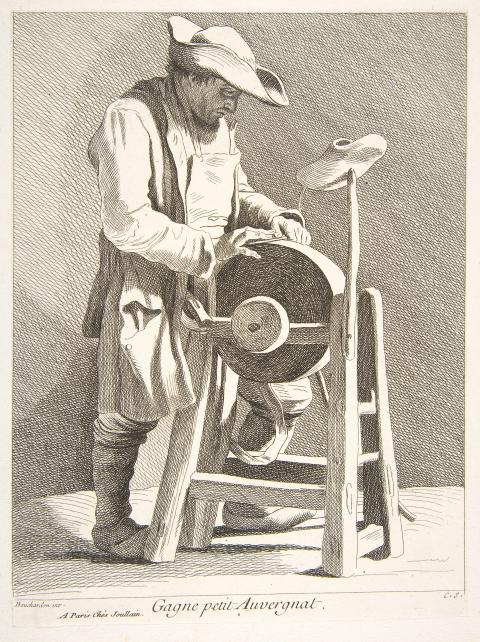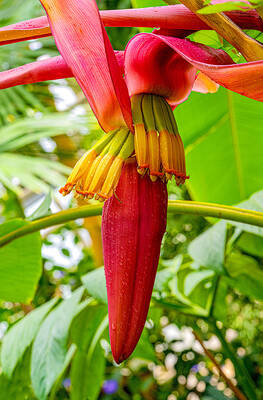Chinese practice
故態復萌
revert to old ways

Photo: Wikimedia Commons
照片:維基共享資源
(gu4 tai4 fu4 meng2)
劉禹錫為唐代著名詩人、思想家、辭賦家,並曾任官於朝廷。劉禹錫因其與改革派的密切關係,被後來繼位的唐憲宗貶謫。在被貶到朗州(位於今湖南)時,劉禹錫作了〈砥石賦〉,做為在困境中對自我的勉礪。
在〈砥石賦〉中,劉禹錫寫道,他有一把原本很鋒利的刀,帶到朗州後因當地潮溼的氣候而生鏽了。一位友人便送他一塊磨刀石,讓劉禹錫把刀磨利、除鏽,於是這把刀得以回復原初的光采。他繼續闡述自己應善加利用當時的處境,把他所遭受的打擊比喻為磨刀石,將自己的積習缺點磨去,如此他便可自我精進,成為一個更好的人。在此賦中,劉禹錫用「故態復還」一詞來指「恢復往日的榮光」。現今我們所用的成語「故態復萌」便是此語稍加改變的樣貌,字面意指「舊的狀態重新萌芽」。然而,這句話的原意是正面積極的,但現在的用法一般都有負面的含意,意思為「old habits die hard」(積習難改──舊的習慣,到死都很難改掉)。
「Old habits die hard」一語出自美國神職人員及歷史學家傑瑞米‧貝爾納普(西元一七四四~一七九八年)。它的意義同成語「故態復萌」,指戒除壞習慣之困難,以及罪犯容易回到老樣子的傾向,即便其動機原本常是良善的。 (台北時報編譯林俐凱譯)
抽查的時間一過,承包商就故態復萌,繼續偷工減料。
(As soon as the spot check was over the contractors were back to their old ways of sloppy work and scrimping on materials.)
英文練習
return (something) to its former glory
old habits die hard
Liu Yuxi was an accomplished poet, philosopher, prose writer and government official in the Tang dynasty. He was banished from court when emperor Xianzong ascended the throne, due to his close association with reformers, and stationed in Langzhou in present-day Hunan. It was in Langzhou that he wrote his “On the Whetstone,” as a way to give himself a bit of encouragement in his unfortunate situation.
In the prose, Liu writes about a sword of his that, while once extremely sharp, had become rusty in the humid climate of his new Langzhou home. A friend gave him a whetstone, and Liu was able to sharpen his sword and remove the rust, returning it to its former glory. He went on to elucidate about making the best of his current situation, using the blows life had dealt him as a metaphorical whetstone to grind away the faults he’d accumulated, such that he could make himself a better person.
Liu used the term “故態復還” to mean “return to its former glory.” That term, in slightly altered form, gives us the idiom now used, 故態復萌, literally “old state sprouts anew.” Whereas the original meaning was essentially positive, the modern usage is generally negative in tone, in the sense of “old habits die hard.”
The phrase “old habits die hard” is accredited to the American clergyman and historian Jeremy Belknap (1744-1798). Like 故態復萌, it refers to the difficulty of breaking bad habits, and the propensity of former offenders to return to their old ways, often despite their otherwise good intentions.(Paul Cooper, Taipei Times)
I know I have to give up smoking, but it’s not easy. Old habits die hard.
(我知道我一定得戒菸,但這並不容易。壞習慣容易故態復萌。)

Have you ever wondered why “Manila envelopes” carry that name? The answer lies in a plant native to the Philippines. Though a fruit-producing plant, abaca is most valued for its leaf stalks, which are __1__ to extract fibers known as “Manila hemp.” These fibers are known for their strength and resistance to saltwater. Because of its __2__ in sea environments, Manila hemp has long been used to make Manila rope, a staple in the sailing and maritime industries for centuries. It withstands harsh ocean conditions without its flexibility being __3__. Manila rope doesn’t break down easily when exposed to

A: In addition to boyband Energy’s concerts, Taiwan’s first major male dance revue has attracted attention. B: Several South Korean male dance revues and Australia’s Thunder from Down Under often tour Taiwan. Now Taiwan’s first all-male revue has finally appeared. A: According to the Liberty Times, Muscle High: A Male Dance Revue from Taiwan, featuring 13 hunks, opened last month and will run until Sept. 14. B: The rise of “hunk fever” in recent years has even caused a trend of working out in Asia. A: Let’s go to the Taipei Music Center’s Sub Livehouse for the show. A:

A: Any fun events happening this weekend? B: Boyband Energy’s concerts and Taiwan’s first major male dance revue have both sparked anticipation recently. A: Energy staged a comeback last year — 15 years after they disbanded — and they’re now more popular than ever. B: Their megahit “Friday Night” even won Song of the Year at the Golden Melody Awards. A: To pay tribute to the Queen of Pop Madonna, they added her choreography of 16 continuous jump squats to their music video, prompting a “16-squat challenge” that went viral across Taiwan. Do you wanna try it out? A:

In a major step to combat carbon emissions, Norway’s pioneering “Northern Lights project” is set to expand its carbon capture and storage (CCS) capabilities. Backed by energy giants and the Norwegian government, this collaborative project is working to increase its annual carbon storage capacity from 1.5 million to over five million tons. Northern Lights focuses on capturing CO2 emissions from industrial sources across Europe and securely storing them underground. Captured CO2 will be liquefied and transported by ship to the storage facility located off the coast of Norway. It will be injected through pipes into geological formations about 2,600m below the